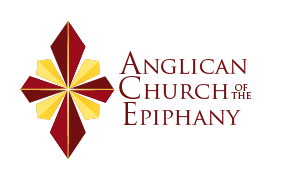The Feast of Sts. Philip and James
On Friday, May 1, we celebrate the Feast of St. Philip and St. James, Apostles of Jesus Christ. I will be celebrating a house Eucharist, since this is considered one of the Anglican Red-Letter Days that, except for the COVID-19 Corona Virus, I would have observed by celebrating Communion at church. I am posting the following homily for this occasion:
Saint Phillip was one of the twelve disciples of Jesus, and tradition suggests that he preached in Greece, Syria, and Phrygia. He appears in the Synoptic Gospels and is described as a disciple from the city of Bethsaida, the same town where Andrew and Peter came from. He was with Jesus when John the Baptist declared Jesus as the Lamb of God, and he introduced Nathanael, also known as Bartholomew, to Jesus. He also may have been with Jesus at the Wedding in Cana, where Jesus performed his first miracle. It was Phillip who asked Jesus how He would be able to feed the 5,000.
Since “Philip” is a Greek name, it is often assumed that he was Greek and may have been known to the Greek pilgrims in Jerusalem since, in the Gospel of John, he advises Andrew that certain Greeks wished to meet with Jesus. During the Last Supper, he asks Jesus to show him the Father. Jesus replies,
“Have I been with you so long, and you still do not know me, Philip? Whoever has seen me has seen the Father. How can you say, ‘Show us the Father’? 10 Do you not believe that I am in the Father and the Father is in me? The words that I say to you I do not speak on my own authority, but the Father who dwells in me does his works. 11 Believe me that I am in the Father and the Father is in me, or else believe on account of the works themselves.”
Some people confuse Philp the Apostle with Philip the Evangelist, who was appointed with Stephen to oversee charitable distributions. It is believed that this Philip may have been beheaded or martyred in the city of Hierapolis with Bartholomew by being crucified upside down. He is commonly associated with the symbol of the Latin Cross and is the patron saint of hatters. In 2011 Turkish news reported that his tomb had been discovered near the city of Denizli.
The Apostle, James, who we also commemorate today, is one of the twelve chosen by Jesus. He is called (or, as we might say today, "tagged as") James “the Minor”, “James the Little”, “James the Lesser”, or “James the Younger” so as not to be confused with James, the son of Zebedee (also called “James the Great” or “James the Elder”). In the Western Church, this James was sometimes identified as either the brother or cousin of Jesus, although most New Testament scholars now reject this identification.It is more likely that this is the same James that was identified as James, son of Alphaeus, and whose name appears only four times in the New Testament, each time in a list of the twelve disciples. It is also possible, as indicated by Roman Catholic tradition, that this James was the son of Mary of Clopas, who, with Mary, the mother of Jesus, and the disciple John, were witnesses at Jesus’ crucifixion. It is also interesting to note that Mark, in his 9th chapter mentions the publican Matthew as the son of Alphaeus. Therefore, this James may have been the brother of Matthew the Tax Collector, a disciple of Jesus.
And so, we have the dilemma of the three James. James the Greater, James the Lesser, and James, brother (or cousin) of Jesus. The church solves this dilemma by assuming that James the Lesser was, like Philip, one of the lesser disciples; he was not the same person as James the Just, a brother or cousin of Jesus; nor was he the same person as James the son of Zebedee and brother of the disciple and evangelist John. Therefore, each of the three “James” has a separate saint’s day, and today this James shares his day with the disciple Phillip.
In Christian art, this James is depicted holding a fuller’s club, a device used to clean wool. Tradition maintains that he was crucified in Lower Egypt, where he was preaching the Gospel. Since both James the Lesser and Philip were martyred, the liturgical color for today is red.
Why do we celebrate these two saints today? Jesus made it clear that, as Christians, it is our duty and obligation to proclaim the Gospel to all nations. Both of these disciples did exactly as ordered, and their lives were taken, as a result.
Without their efforts, and the efforts of so many other Christians who have lost their lives and, even today, continue to die for the Gospel of Christ, the world would not know Jesus and the sacrifices that he made for us, so that, when we believe, we may have eternal life.
Written by Fr. Steve Sterry, Associate Priest at Anglican Church of the Epiphany


